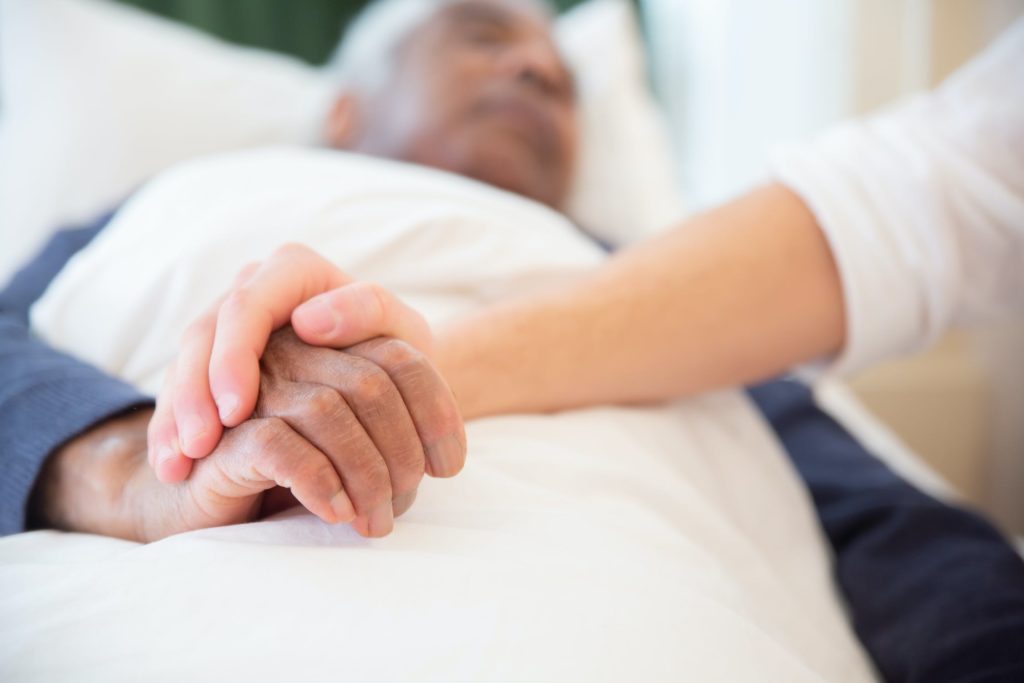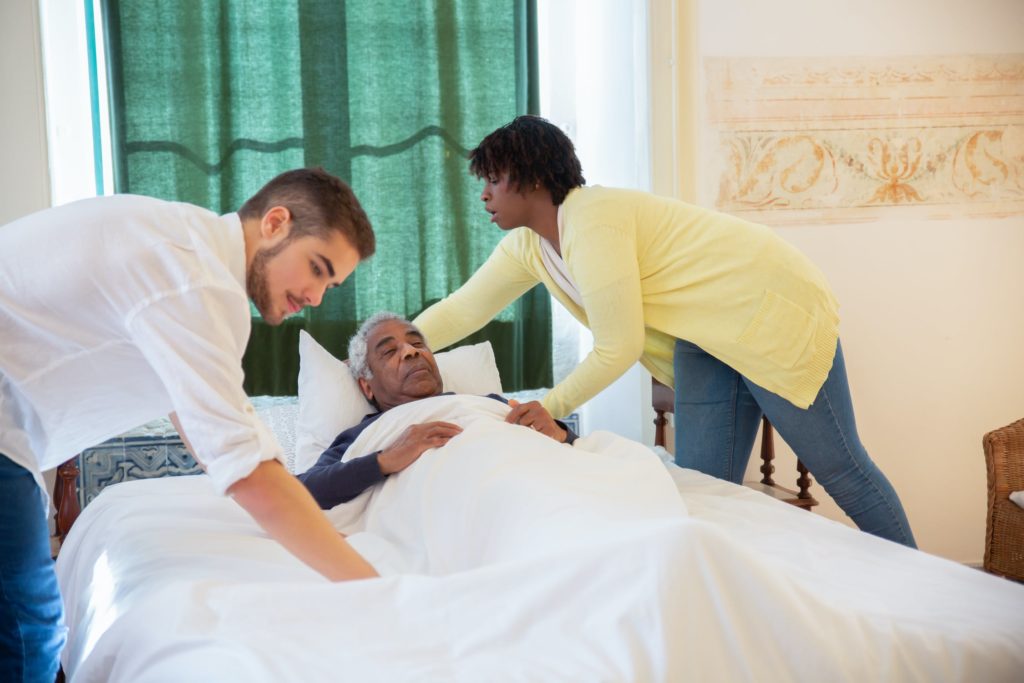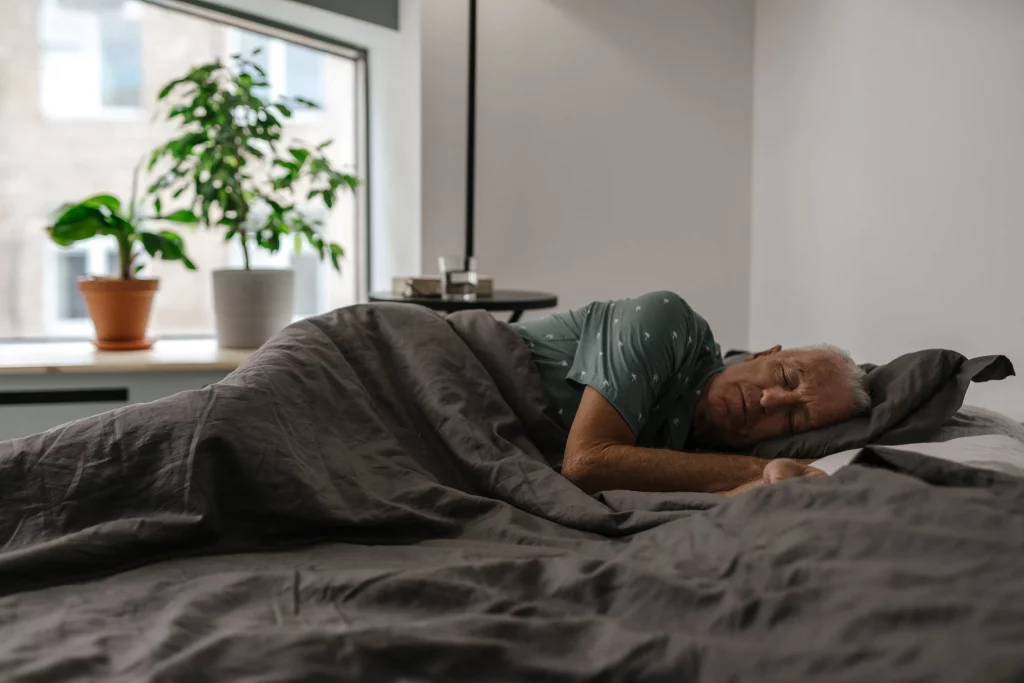Suffering from a medical condition is always a daunting experience for anyone. And they can end up confined in a bed for a lengthy period, if not for life. When that happens, their loved ones often have to step up and become their primary caregivers. However, home care for bedridden patients can be a challenging task. Here is a guide that providers of home health care services in California prepared to help you.

The Health Risks A Bedridden Patient Faces
While lengthy bed rest is vital for certain conditions, a prolonged one can also be harmful to patients. That is because lying down is not an optimal position for your body. It can disrupt your body’s normal functions, leading to these health issues.
Blood Clots
When you lie down, your blood moves more slowly from the veins to the heart. That can lead to clotting. Such blood clots can start forming anywhere. However, those in the legs can be particularly dangerous. These can travel up towards the heart and block the passageway to it, a condition known as pulmonary embolism. Such a condition can be life-threatening.
Constipation
Another body process that gets heavily disrupted due to prolonged bed rest is excretion. Stool also moves more slowly through the intestine and out of the body. That leads to constipation. The patient’s inability to head to the toilet to relieve themselves can worsen this.
Weak Bones And Muscles
Having to stay in bed for a long time means that your body is not engaged in physical activities. This inactivity can lead to your muscles and bones weakening. In the case of bones, they start to weaken due to not supporting any weight. On the other hand, muscles atrophy when they don’t move often.
The situation can also result in stiff joints, which eventually become locked. That can lead to a vicious cycle for the patient. Because they can’t move very well at this point, they need to stay in bed more. That eventually slows down recovery.
Pressure Sores
Because a bedridden patient often stays in just one position, they put a lot of pressure on the skin that touches the bed surface. It can cut off the blood supply to the area, resulting in tissue breakdown known as pressure sores. These often occur in the lower back, elbows, hips, and heels.
These pressure sores are uncomfortable and can also lead to infections. That is particularly the case with patients who leak urine involuntarily. That infection can then travel to the bloodstream through the skin lesions, resulting in sepsis.
Pneumonia
Staying immobile for too long can lead to a buildup of fluids in the chest. That results in pneumonia, which can be especially dangerous for elderly bedridden patients. Their weaker respiratory systems can become more susceptible to damage.
Depression
It is not only the physical signs you have to deal with when caring for bedridden patients. Mental issues are also very much a concern. In particular, depression is common. It typically stems from patients’ frustration at not being able to move out of bed. A monotonous environment can also trigger it.
Caring For Your Bedridden Loved Ones The Right Way
Caring for a bedridden loved one requires a significant amount of dedication. After All, they depend on you for almost all of their needs. As such, you need to be ready for the work at hand.
Creating A More Comfortable Environment
The first thing you need to do is prepare a comfortable environment for your loved one. Keep in mind that they will be spending most of the time here. A comfortable environment can help them recover faster. Some of the things you can do are:
- Make the room well lit: Provide as much natural light as possible by opening windows.
- Provide easy bathroom passage: As much as possible, you want that bathroom to be adjacent to the room and near the bed. Make sure there is no clutter in the path to it.
- Put a nightstand: Place things within reach of the patient, such as an alarm clock, a phone, and food and water.
- Have ample ventilation: Fully open the windows from time to time to allow stale air to go out and fresh air to come in.
- Lessen distractions: Ensure that there is no noise that happens near the room, especially during the patient’s rest period.
Aside from these general tips, you also need to account for the patient’s special needs. For instance, you need to make it easy for them to use any special equipment they may need or want.
Ensuring Proper Hygiene
Hygiene is also a significant issue for bedridden patients. Depending on their situation, they might require assistance in certain grooming tasks. The following are the particular ones you should pay attention to.
- Bathing: If the patient is mobile enough, you can provide a shower chair they can use in the bathroom. Otherwise, you can give a bed bath depending on the circumstances.
- Dental care: Be as gentle as possible when brushing their teeth to avoid injury to the teeth and gums.
- Clothing: Encourage your loved ones to change clothes daily to avoid the buildup of dirt and grime.
- Fingernails and tonsils: Patients can bruise their skin if they scratch and itch with long nails. Trim their nails every week to lessen the growth.
- Hair grooming: Long, unkempt hair and beards can invite lice and parasites. Assist the patient with combing their hair daily. You can also have their hair and beards trimmed once a month.
Create a schedule for all of these grooming activities. This way, they become less intrusive and patients can better adjust to that routine.
Dealing With Bed Sores
As mentioned above, bedsores can be a recurring issue for those who are bedridden. However, these are preventable. The key is repositioning the patient so that they are not putting their body weight into one area for prolonged periods. Do this every few hours.
If the patient can move independently, encourage them to reposition themselves. Explain to them why they need to do it. For completely invalid patients, you can ask advice from doctors on how to position them properly without causing injury.
Additionally, you want to change their bed linens regularly. This prevents bed sore-related infections and is part of the general hygiene practices. You need to change the top cover and the pillowcases every 2 to 3 days. Choose a fabric that is not rough to avoid irritation.
Taking Time To Talk To Them
Boredom is one of the biggest enemies of bedridden patients. Since they can’t move around, they are often alone. Conversing with them from time to time will help uplift their spirits. You can also join them in activities like eating and watching TV so that they feel more valued and cared for.

Get The Best Home Health Care Services In California For Your Bedridden Loved One
Caring for a bedridden patient can be tough, so much so that you might feel burned out at times. Do yourself a favor and get some help. Amavi offers the best home health care services in California that meet all your loved one’s needs. Contact us today and see what we have to offer.

